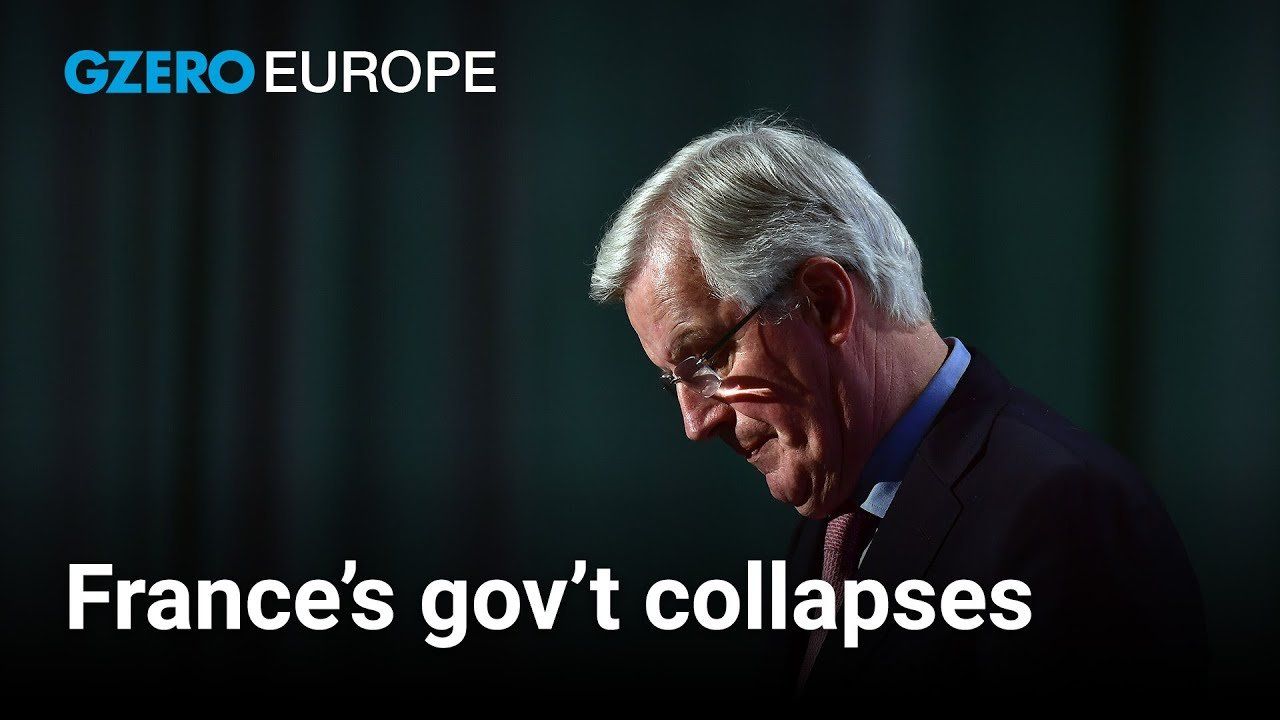December 04, 2024
Carl Bildt, former prime minister of Sweden and co-chair of the European Council on Foreign Relations, shares his perspective on European politics from Parma, Italy.
First question, obviously, is what's happening in France?
The Barnier government didn't last more than 57 days. It was brought down by the populists of the right and the populists of the left. And Barnier tried to do what needs to be done. Bring the French budget under control. They have a deficit of roughly 6% of GDP. That's double what is allowed under the European Union rules and they were headed to 7%. He had proposed a budget of tax cuts and expenditure cuts, take it down to 5%, which is too high anyhow, and brought down. So what will happen now? Well, Marine Le Pen would like to get rid of Macron. I think that's unlikely to happen in the short perspective anyhow. And Macron, the president, will have to find a new prime minister and a new government. That will take its time. And from the wider European perspective, of course, less than ideal. We have an extremely weak government in Germany heading for elections and likely to lose that particular election. We now have a situation where France doesn't have any functioning government either, and we have things happening on the other side of the Atlantic.
Second question, is there any way for the European Union and other Europeans to influence the course of events in Georgia?
Well, one would hope so, but I think prospects are not particularly good. We have an increasingly seemingly authoritarian, I would call it, government leaning towards some sort of, call it, Putin-esque regime, consolidating power using violence, have evidently falsified and rigged elections to a very large extent, and intending to stay in power. And now, we have a fairly significant popular opposition developing on the streets of not only Tbilisi, but several other Georgian cities. Will that result in violence? Will that result in some sort of accommodation? Will that result in it all being repressed? We don't know. EU will have to, and America as well, contemplate sanctions and other measures in a fairly short period of time in order to have any possibility of influencing the course of events. Otherwise, I fear the prospects are rather grim.
More For You
World Central Kitchen staff hand out free soup in a neighbourhood that experiences electricity and heating outages following recent Russian attacks on Ukraine’s civilian infrastructure during subzero temperatures in Kyiv, Ukraine February 3, 2026.
REUTERS/Thomas Peter
1,170: The number of high-rise buildings in Kyiv that were left without heating following a barrage of Russian attacks last night on Ukraine’s capital and its energy facilities, per Kyiv Mayor Vitali Klitschko.
Most Popular
What We’re Watching: US critical minerals summit, Rafah crossing reopens, Border violence in Pakistan
Feb 02, 2026
U.S. President Donald Trump and Japanese Prime Minister Sanae Takaichi hold up signed documents regarding securing the supply of critical minerals and rare earths, at a bilateral meeting at Akasaka Palace in Tokyo, Japan, October 28, 2025.
REUTERS/Evelyn Hockstein
Representatives from the European Union, United Kingdom, Japan, and others will meet in Washington this week to discuss a strategic alliance on critical minerals.
Hard numbers: Large protests in Czechia, UAE-linked firm has large stake in the president’s company, & More
Feb 02, 2026
People take part in a rally in support of Czech President Petr Pavel, organised by Million Moments for Democracy group in reaction to dispute between President Pavel and Czech Foreign Minister and Motorists chair Petr Macinka, in Prague, Czech Republic, February 1, 2026.
REUTERS/Eva Korinkova
80,000: The number of people estimated to be in the streets of Czechia on Sunday to show their support for President Petr Pavel after he blocked the nomination of an environmental minister who performed the Nazi salute and posted Nazi memorabilia.
US President Donald Trump and musician Nicki Minaj hold hands onstage at the US Treasury Department's Trump Accounts Summit, in Washington, D.C., USA, on January 28, 2026.
REUTERS/Kevin Lamarque
The US has started handing $1,000 to the bank accounts of newborn babies. But can policies like this one help boost sagging birthrates in advanced democracies?
© 2025 GZERO Media. All Rights Reserved | A Eurasia Group media company.
